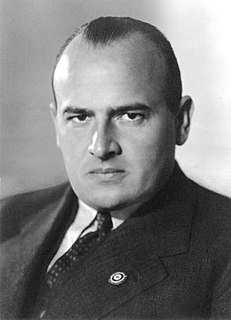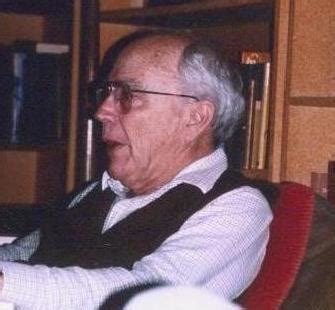A Quote by Friedrich Nietzsche
Faced with a world of "modern ideas" which would like to banish everyone into a corner and a "specialty," a philosopher, if there could be a philosopher these days, would be compelled to establish the greatness of mankind, the idea of "greatness," on the basis of his own particular extensive range and multiplicity, his own totality in the midst of diversity.
Related Quotes
The philosopher is like a man fasting in the midst of universal intoxication. He alone perceives the illusion of which all creatures are the willing playthings; he is less duped than his neighbor by his own nature. He judges more sanely, he sees things as they are. It is in this that his liberty consists - in the ability to see clearly and soberly, in the power of mental record.
Whoever has not arrived at the clear insight that there might be greatness entirely outside his own sphere for which he has no understanding, whoever does not have at least a dim inkling in which area of the human spirit this greatness might be situated: he is within his own sphere either without genius, or he has not educated himself up to the point of the classical attitude.
The student who would build his knowledge on solid foundations, and proceed by just degrees to the pinnacles of truth, is directed by the great philosopher of France to begin by doubting of his own existence. In like manner, whoever would complete any arduous and intricate enterprise, should, as soon as his imagination can cool after the first blaze of hope, place before his own eyes every possible embarrassment that may retard or defeat him. He should first question the probability of success, and then endeavour to remove the objections that he has raised.
Strange is the vigour in a brave man's soul. The strength of his spirit and his irresistible power, the greatness of his heart and the height of his condition, his mighty confidence and contempt of danger, his true security and repose in himself, his liberty to dare and do what he pleaseth, his alacrity in the midst of fears, his invincible temper, are advantages which make him master of fortune.
Some philosophers tell us that selfishness is at the root of our best loves and affections. Mr. Dombey's young child was, from the beginning, so distinctly important to him as a part of his own greatness, or (which is the same thing) of the greatness of Dombey and Son, that there is no doubt his parental affection might have been easily traced, like many a goodly superstructure of fair fame, to a very low foundation.
In my acquaintance with John Rawls, I found him to be a simple and honest man, who just by chance also happened to be the greatest moral philosopher of the twentieth century. I would like to think that I could emulate at least his modesty - his refusal to exaggerate his perception of himself and his place in the larger scheme of things - even if my work never compares with his in its importance.
Either [Jesus] was what he said he was or he was the world's greatest liar. It is impossible for me to believe a liar or charlatan could have had the effect on mankind that he has had for 2000 years. We could ask, would even the greatest of liars carry his lie through the crucifixion, when a simple confession would have saved him? ... Did he allow us the choice... to believe in his teaching but reject his statements about his own identity?
The civilized nations--Greece, Rome, England--have been sustained by the primitive forests which anciently rotted where they stand. They survive as long as the soil is not exhausted. Alas for human culture! little is to be expected of a nation, when the vegetable mould is exhausted, and it is compelled to make manure of the bones of its fathers. There the poet sustains himself merely by his own superfluous fat, and the philosopher comes down on his marrow-bones.
The left think they've got a monopoly on this silly idea that we are a nation of immigrants, America's greatness is traceable to its immigrants. I'm sorry. I don't buy that as a stand-alone idea anyway because really what they're trying to say with that is that America's greatness is due to America's diversity, and that has not a thing to do with it. American Greatness is because of the Constitution, the Declaration of Independence, and our country.








































